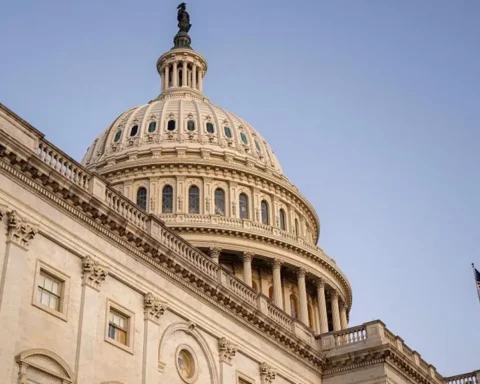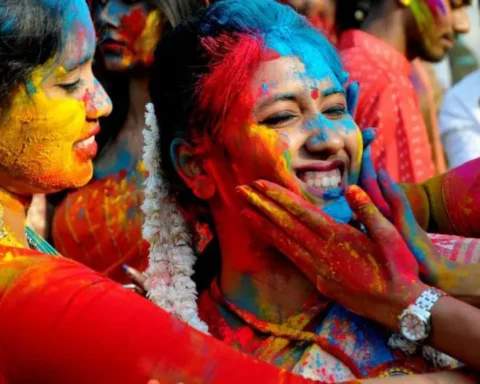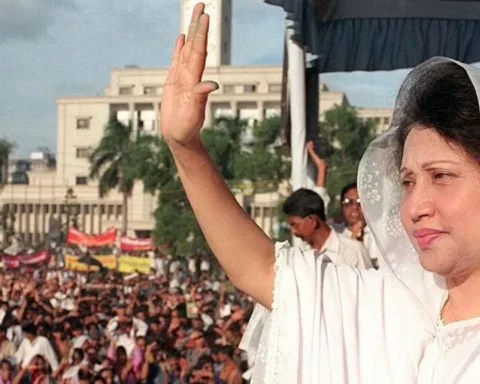In 1997 Hong Kong was handed back to China, triggering the start of a grand political experiment.
Many were anxious about how the capitalist, free-wheeling former British colony would fare under Communist Chinese rule.
So Beijing promised Hong Kong’s civil liberties and freedom – unavailable in the mainland – would be preserved for at least 50 years under a novel arrangement called “one country, two systems”.
Now, after a tumultuous 25 years, that experiment has reached its halfway point.
What lies ahead over the next 25 years?
Changing politics
A major question is how much political autonomy and freedom Hong Kong will retain.
Before the handover, many had hoped that China would eventually become more liberal and, in time, allow full democracy for Hong Kong as well.
This is a promise enshrined in the city’s Basic Law, a mini constitution arising from an agreement between Britain and China.
It stipulates progressive election reform so that the chief executive and all members of the legislature will eventually be elected through universal suffrage.
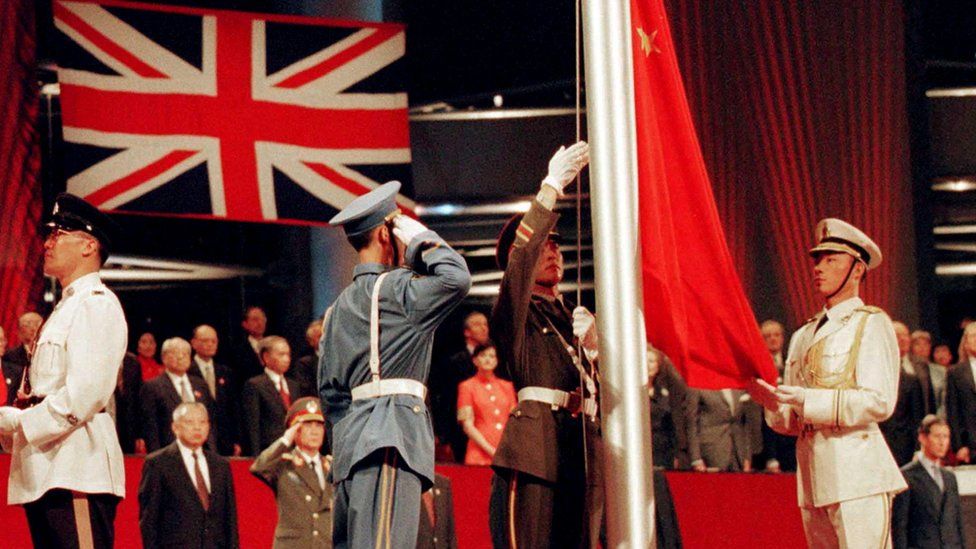
But some critics think that Beijing has shattered this promise in recent years with a restrictive national security law and electoral reforms which allow only “patriots” to run for Hong Kong’s leadership.
The 2020 law followed massive pro-democracy protests in 2019, which included violent clashes between demonstrators and police.
Now, observers say, there is slim hope for a more democratic political system and they fear that the character of the city has fundamentally changed, with Beijing in full control.
“Most Hong Kong people think that ‘one country, two systems’ has already disappeared,” says Ted Hui, a former pro-democracy lawmaker who has fled the city.
Authorities say the national security law affects a minority, but Mr Hui says it stifles Hong Kong’s once-vibrant civil society.
In its wake, dozens of groups, including political parties and unions, have disbanded. The annual candlelight vigil commemorating the 1989 Tiananmen Square massacre and the 1 July handover anniversary march have been effectively banned by authorities.
Several pro-democracy media outlets, including Apple Daily and Stand News, have closed down in the past year.
Hong Kong, once a beacon of press freedom in Asia, was ranked 148th in the world for press freedom this year, tumbling down nearly 70 places since the previous year.
And “the city of demonstrations” – which has a long history of peaceful protest – has fallen silent since the national security law took effect.
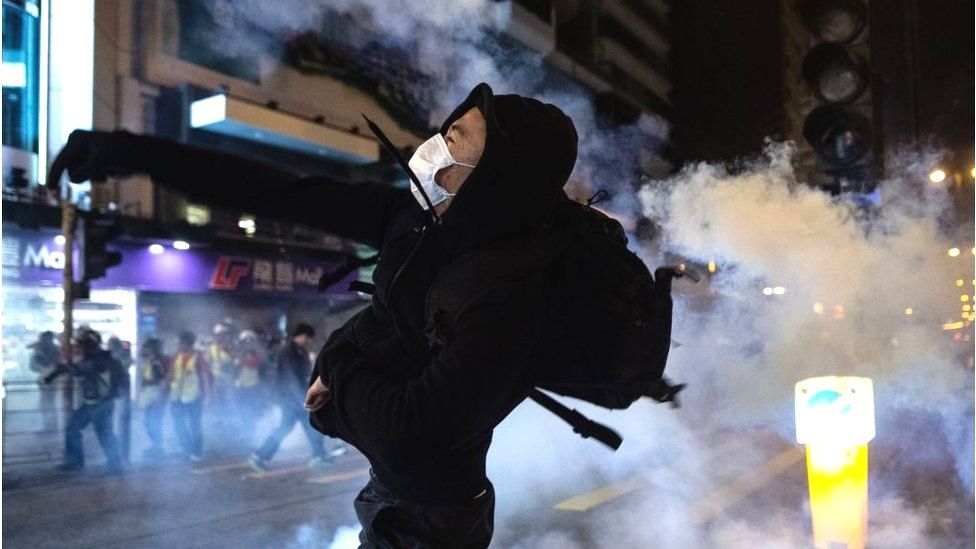
“It’s fair to say that no large-scale, on-the-ground protests will occur in Hong Kong in the foreseeable future,” said Jeffrey Ngo, a policy and research fellow of US-based Hong Kong Democracy Council.
“Beginning in 2020, you have people in Hong Kong who are either in jail and therefore can’t do anything, or some who try to stay out of jail so they self-censor for good reason.”
Chinese officials have claimed the recent changes were necessary “improvements” to “one country, two systems”, which they hailed as a “widely acknowledged success” that could even continue past 2047.
Dominic Lee, a pro-Beijing lawmaker, also argues that Hong Kong people still enjoy civil liberties.
“People can express their opinion on different issues, as long as it has nothing to do with national security,” he said. “There will be more hearings and the court will decide what concerns national security.”
He also says Beijing passed the national security law and changed the electoral system as Hong Kong was “growing politicised” and it reached a “critical point” in 2019 when the city’s legislature was paralysed by the pro-democracy camp.
“If you ask me, both the national security law and the electoral rule changes are the pro-democracy camp’s own making,” he said, adding that moderate voices had been “marginalised”.
Lee believes many distinctive features of Hong Kong remain – and will likely stay the same beyond 2047.
“I can’t speak for the central government, but I think its main objective is to maintain Hong Kong’s prosperity.”
International or Chinese financial centre?
Another question is whether Hong Kong can maintain its status as a leading international financial hub.
In 1997, the “pearl of the Orient” was a wealthy city whose GDP was equivalent to almost one-fifth of China’s. Now it’s only about 2%, and Hong Kong is facing intense competition from many other Chinese cities, especially Shanghai.
“Twenty-five years ago when China was much less developed than it is now, Hong Kong stood out as a very developed, internationally connected city,” says Louis Kuijs, chief Asia Pacific economist of S&P Global Ratings.
“Many cities have caught up with Hong Kong economically.”
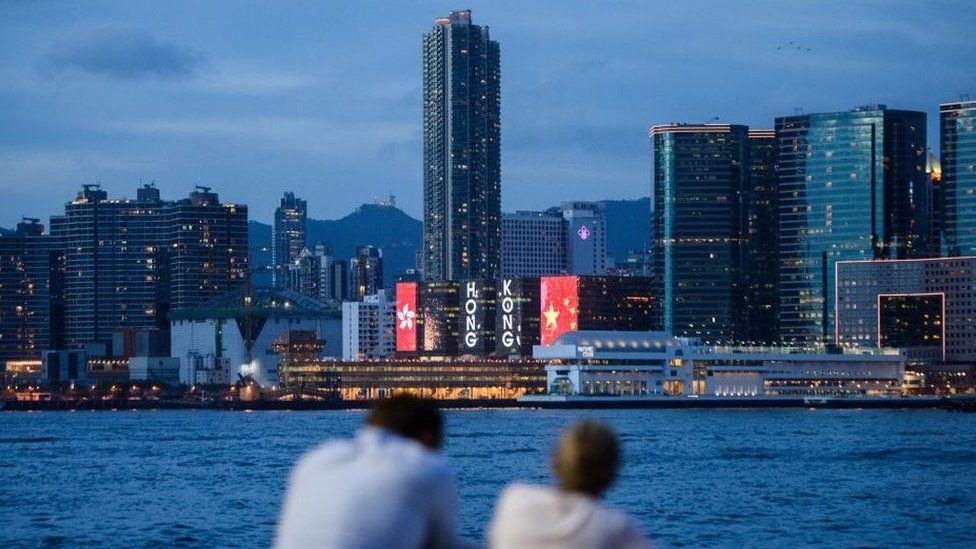
Mr Kuijs says the city is still “the pre-eminent gateway in and out of China” as it has an internationally recognised legal system and financial markets that are “very open to the rest of the world”.
But recent tensions with Beijing and the strict zero Covid strategy have had many asking if the city is losing its appeal with international companies.
The number of regional headquarters of international firms in Hong Kong dropped by nearly 10% from 2018 to 2021. But the number of mainland Chinese companies setting up shop in the city has gone up by nearly 28%.
“The face of Hong Kong is evolving and it’s probably becoming a little bit less international… and a bit more mainland-oriented,” Mr Kuijs says.
Hongkonger or Chinese?
But one of the most pressing questions is what it means to be a Hongkonger.
The diaspora is quickly growing with an increasing number of locals leaving the city in recent years.
Hong Kong officials don’t track emigration. But many of those who left permanently are likely to have moved to the UK, which received more than 123,000 applications for the BNO visa since its introduction in January 2021 until the end of March this year.
About 70% of Hong Kong’s population – 5.4 million – can apply for the visa, which allows holders the right to live and work in the UK.
Political uncertainty has set off immigration waves in the city in the past – such as when the Sino-British Joint Declaration was signed in 1984, or after the Tiananmen Square massacre in Beijing in 1989.
But Mr Ngo believes it’s different this time.
For those who left earlier, “the political threat was conceivable, but there was still a possibility that things could turn out not to be so bad”.
“Right now, the possibility is gone. This time, people are leaving Hong Kong with the expectation that they probably will not return.”


